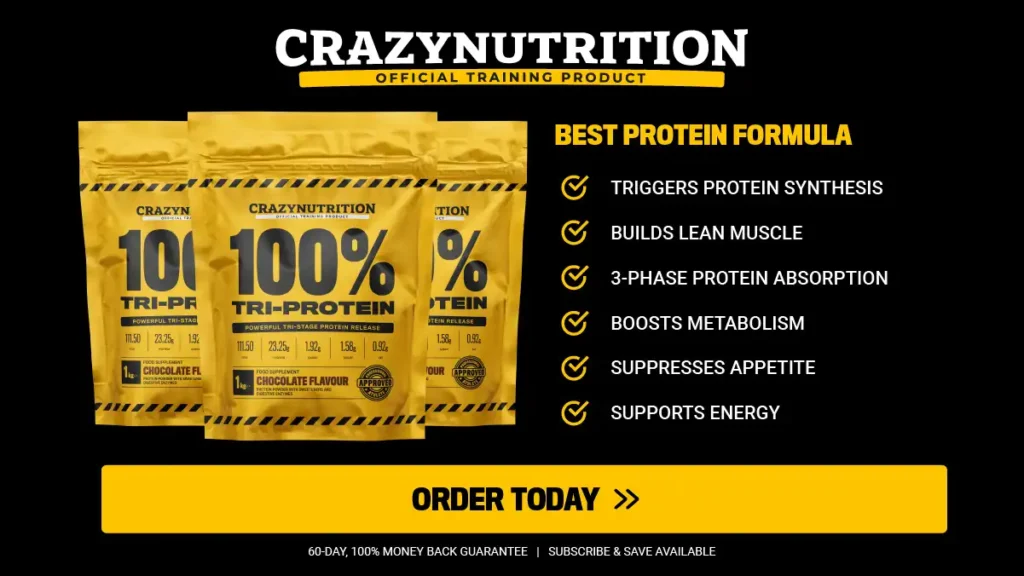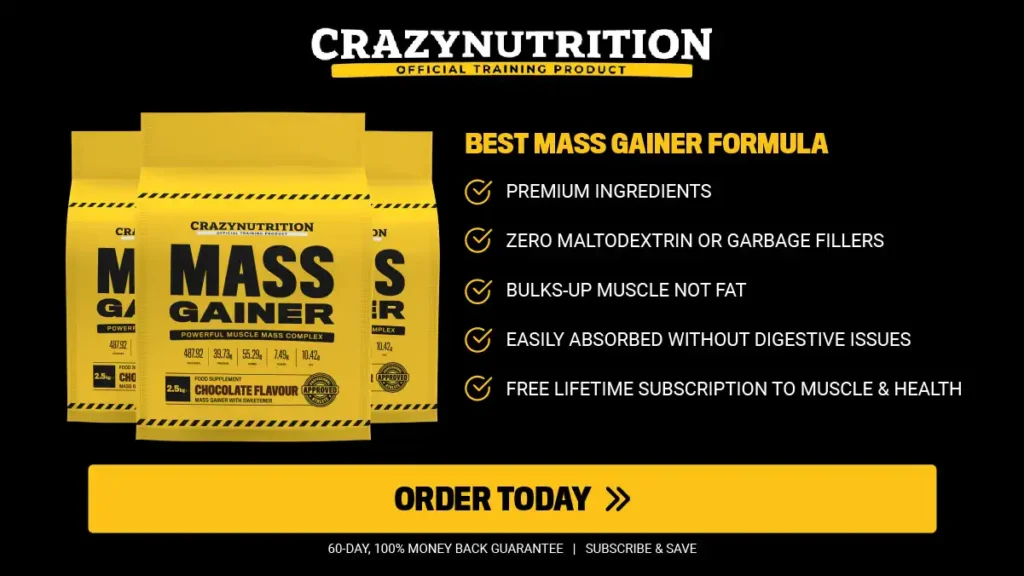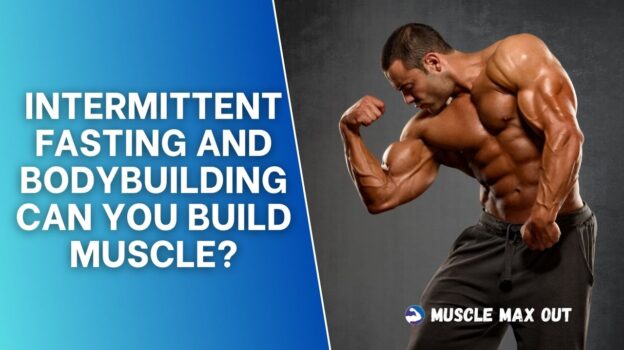The fitness world has witnessed a surge in intermittent fasting (IF) popularity over recent years, with many athletes and fitness enthusiasts embracing this eating pattern for its potential health and performance benefits.
However, bodybuilders often find themselves questioning whether intermittent fasting aligns with their muscle-building goals. The traditional bodybuilding approach of eating frequent meals throughout the day seems to contradict the extended fasting periods that define intermittent fasting protocols.
This comprehensive guide explores the relationship between intermittent fasting and muscle building, examining the science behind both practices and providing practical insights for bodybuilders considering this approach.

Understanding Intermittent Fasting
Intermittent fasting represents an eating pattern that cycles between periods of eating and fasting. Rather than focusing on what foods to consume, IF emphasizes when to eat them. This approach has gained traction not only for weight management but also for its potential metabolic and health benefits.
Popular Intermittent Fasting Methods
Several IF protocols exist, each with different fasting and eating windows:
- 16:8 Method: Fast for 16 hours, eat within an 8-hour window (most popular among beginners)
- 18:6 Method: Fast for 18 hours, eat within a 6-hour window
- 20:4 Method: Fast for 20 hours, eat within a 4-hour window
- OMAD (One Meal A Day): Fast for 23 hours, consume all calories in one meal
- 5:2 Diet: Eat normally for 5 days, restrict calories to 500-600 for 2 non-consecutive days
- Alternate Day Fasting: Alternate between normal eating days and fasting or very low-calorie days
The 16:8 method remains the most accessible for beginners and those maintaining active lifestyles, as it typically involves skipping breakfast and eating between noon and 8 PM.
Physiological Effects of Intermittent Fasting
During fasting periods, several metabolic changes occur in the body:
- Insulin Sensitivity: Fasting periods can improve insulin sensitivity, potentially enhancing nutrient uptake when eating resumes
- Growth Hormone: Some studies suggest intermittent fasting may increase growth hormone levels, which could theoretically support muscle preservation
- Autophagy: Extended fasting periods trigger cellular cleanup processes that may promote overall health
- Fat Oxidation: The body shifts toward using stored fat for energy during fasting states
Traditional Bodybuilding Nutrition Principles
Conventional bodybuilding nutrition emphasizes several key principles that have guided muscle-building strategies for decades:
Frequent Meal Timing
Traditional bodybuilding wisdom advocates eating every 2-3 hours to:
- Maintain steady amino acid availability for muscle protein synthesis
- Keep metabolism elevated throughout the day
- Prevent muscle protein breakdown during extended periods without food
- Optimize nutrient timing around workouts
Protein Distribution
Classic bodybuilding approaches recommend spreading protein intake across multiple meals to:
- Maximize muscle protein synthesis throughout the day
- Ensure adequate amino acid availability for recovery
- Support consistent anabolic signaling
- Prevent muscle catabolism during sleep and between meals
Caloric Surplus for Muscle Growth
Building muscle typically requires consuming more calories than the body burns, creating an anabolic environment that supports:
- Muscle protein synthesis
- Recovery from intense training sessions
- Adequate energy for high-volume workouts
- Optimal hormone production for growth
The Science Behind Muscle Building and Fasting
Recent research has begun to challenge some traditional assumptions about meal timing and muscle building, providing insights into how intermittent fasting might affect bodybuilding goals.
Muscle Protein Synthesis and Meal Timing
Muscle protein synthesis (MPS) represents the process by which muscles repair and grow following training stimuli. Traditional thinking suggested that frequent protein intake was necessary to maintain elevated MPS throughout the day. However, emerging research indicates that:
- MPS remains elevated for several hours following protein consumption
- The total daily protein intake may be more important than timing for muscle growth
- Adequate protein intake within the eating window can maintain positive protein balance
- The anabolic response to protein may be enhanced following fasting periods
Intermittent Fasting and Muscle Preservation
Several studies have examined whether intermittent fasting supports muscle retention during caloric restriction:
- Research on alternate-day fasting showed similar muscle preservation compared to continuous caloric restriction
- Studies on time-restricted eating demonstrated maintained muscle mass when protein intake remained adequate
- Some research suggests IF may help preserve muscle mass better than traditional caloric restriction methods
Growth Hormone and IGF-1 Responses
Intermittent fasting appears to influence several hormones relevant to muscle building:
- Growth hormone levels may increase during fasting periods, potentially supporting muscle preservation
- IGF-1 (Insulin-like Growth Factor-1) responses to feeding may be enhanced following fasting
- Improved insulin sensitivity from IF could optimize nutrient partitioning toward muscle tissue
Benefits of Intermittent Fasting for Bodybuilders
Bodybuilders considering intermittent fasting may experience several potential advantages that could support their training and physique goals.
Enhanced Fat Loss While Preserving Muscle
Many bodybuilders struggle with maintaining muscle mass during cutting phases. Intermittent fasting may offer benefits for body composition:
- Simplified caloric restriction through shortened eating windows
- Improved insulin sensitivity supporting fat oxidation
- Potential for maintaining higher training intensity due to improved metabolic flexibility
- Enhanced autophagy processes that may support muscle quality
Improved Insulin Sensitivity
Better insulin sensitivity can benefit bodybuilders by:
- Optimizing nutrient partitioning toward muscle tissue
- Reducing fat storage from carbohydrate intake
- Enhancing post-workout glycogen replenishment
- Supporting better blood sugar control during bulking phases
Simplified Meal Planning
The structured eating windows of intermittent fasting can offer practical benefits:
- Reduced meal preparation time and complexity
- Easier adherence to caloric and macronutrient targets
- Less frequent decision-making about food choices
- Potential cost savings from fewer meals
Mental and Digestive Benefits
Some bodybuilders report additional advantages from IF:
- Improved mental clarity and focus during fasting periods
- Better digestive health from extended rest periods
- Reduced bloating and digestive discomfort
- Enhanced relationship with hunger and satiety cues
Potential Challenges and Considerations
While intermittent fasting offers potential benefits, bodybuilders should consider several challenges before adopting this approach.
Meeting High Caloric Requirements
Bodybuilders often require substantial caloric intake, particularly during bulking phases. Compressed eating windows can make it challenging to:
- Consume adequate total calories for muscle growth
- Meet high protein requirements (often 0.8-1.2g per pound of bodyweight)
- Include sufficient carbohydrates for training performance
- Maintain comfortable meal sizes without digestive distress
Training Performance Considerations
Fasted training presents both opportunities and challenges:
- Some individuals perform well during fasted cardio sessions
- High-intensity resistance training may suffer without pre-workout nutrition
- Post-workout nutrition timing becomes more critical
- Recovery between training sessions might be affected
Social and Lifestyle Factors
Intermittent fasting can impact social and lifestyle aspects:
- Difficulty participating in breakfast meetings or early social meals
- Potential conflicts with family meal times
- Challenges when traveling or eating out
- Need for careful planning around work and training schedules
Practical Implementation for Bodybuilders
Bodybuilders interested in trying intermittent fasting should approach implementation strategically to maximize benefits while minimizing potential drawbacks.
Choosing the Right IF Protocol
Different IF methods suit different bodybuilding goals and lifestyles:
| IF Method | Best For | Considerations |
|---|---|---|
| 16:8 | Beginners, cutting phases | Most sustainable, allows 3 meals |
| 18:6 | Experienced practitioners | More challenging, requires larger meals |
| 20:4 | Advanced, aggressive cuts | Very difficult to meet caloric needs |
| OMAD | Extreme cutting only | Nearly impossible to meet muscle-building requirements |
| 5:2 | Gradual fat loss | Allows normal eating most days |
Optimizing Nutrient Timing
Strategic nutrient timing can help bodybuilders maximize IF benefits:
- Pre-workout: Consider breaking the fast with easily digestible carbohydrates and caffeine
- Post-workout: Prioritize protein and carbohydrates immediately after training
- Throughout eating window: Distribute protein across all meals within the window
- Before fasting: Include slow-digesting proteins and healthy fats in the final meal
Sample Daily Schedule
A practical 16:8 IF schedule for bodybuilders might look like:
- 6:00 AM: Black coffee or tea (fasting continues)
- 10:00 AM: Pre-workout (BCAAs optional, controversial during fasting)
- 11:00 AM: Resistance training
- 12:00 PM: Post-workout meal (break fast) – protein and carbohydrates
- 4:00 PM: Lunch – balanced macronutrients
- 7:30 PM: Dinner – final meal before fasting begins
- 8:00 PM: Begin 16-hour fast
Macronutrient Distribution
Within the eating window, bodybuilders should prioritize:
- Protein: 25-40g per meal, focusing on complete proteins
- Carbohydrates: Emphasized around training sessions
- Fats: Included in meals away from workout timing
- Micronutrients: Ensure adequate vitamin and mineral intake through varied food choices
Monitoring Progress and Adjustments
Successful implementation of intermittent fasting for bodybuilding requires careful monitoring and willingness to adjust the approach based on results.
Key Metrics to Track
Bodybuilders should monitor several indicators:
- Body weight and composition: Regular measurements to assess muscle retention and fat loss
- Training performance: Strength, endurance, and recovery between sessions
- Energy levels: Subjective feelings throughout the day and during workouts
- Sleep quality: IF can affect sleep patterns, which impact recovery
- Hormonal markers: Consider periodic blood work to assess hormonal health
Signs That Adjustments Are Needed
Several warning signs might indicate the need to modify or abandon IF:
- Consistent decline in training performance
- Significant muscle mass loss beyond expected cutting phase changes
- Persistent fatigue or mood changes
- Inability to meet caloric or protein requirements
- Disrupted sleep patterns or increased stress levels
Making Strategic Modifications
Rather than abandoning IF entirely, bodybuilders can make adjustments:
- Shorten fasting windows: Move from 18:6 to 16:8 if struggling with caloric intake
- Adjust timing: Shift eating windows to better align with training schedules
- Implement cycling: Use IF during cutting phases and normal eating during bulking
- Add flexibility: Allow occasional breaks from the protocol for social or training reasons
Intermittent Fasting During Different Training Phases
The applicability of intermittent fasting varies depending on bodybuilding phases and goals.
Cutting Phase
IF may be most beneficial during cutting phases:
- Natural caloric restriction through shortened eating windows
- Improved insulin sensitivity supporting fat loss
- Simplified meal planning and adherence
- Potential psychological benefits from structured eating
Bulking Phase
Bulking while practicing IF presents greater challenges:
- Difficulty consuming sufficient calories for muscle growth
- Risk of inadequate protein intake for optimal muscle protein synthesis
- Potential compromise of training performance and recovery
- May require very large meals causing digestive discomfort
Maintenance Phase
Maintenance phases offer a middle ground:
- Moderate caloric requirements easier to meet
- Opportunity to experiment with different IF protocols
- Focus on body recomposition rather than extreme muscle gain or fat loss
- Time to assess individual response to IF

The Verdict: Can You Build Muscle with Intermittent Fasting?
The evidence suggests that building muscle while practicing intermittent fasting is possible but requires careful attention to several factors. Success depends largely on individual circumstances, goals, and implementation approach.
When IF May Support Muscle Building
Intermittent fasting may be compatible with muscle building when:
- Total daily protein intake meets or exceeds requirements (0.8-1.2g per pound bodyweight)
- Caloric intake supports muscle growth goals
- Training performance remains high
- Recovery and sleep quality are maintained
- The individual responds well to the eating pattern
When Traditional Approaches May Be Superior
Conventional frequent feeding might be preferable when:
- Caloric requirements are extremely high (3500+ calories daily)
- Training volume and frequency are very demanding
- Recovery between sessions is already compromised
- The individual struggles to meet nutrient needs within restricted windows
- Lifestyle factors make IF impractical or stressful
Individual Variation
The most important consideration is individual response. Some bodybuilders thrive with intermittent fasting protocols, while others perform better with traditional eating patterns. Factors influencing success include:
- Genetic predisposition to different eating patterns
- Training schedule and intensity
- Work and lifestyle demands
- Personal preference and psychological relationship with food
- Existing metabolic health and insulin sensitivity
Conclusion
Intermittent fasting and bodybuilding can coexist successfully, but this combination requires thoughtful implementation and realistic expectations. While IF may not be optimal for every bodybuilder or training phase, it offers a viable alternative to traditional frequent feeding approaches for many individuals.
The key to success lies in prioritizing total daily nutrient intake over meal timing, maintaining adequate protein consumption, and ensuring that training performance and recovery remain optimal. Bodybuilders considering IF should approach it as one tool among many, rather than a magic solution for muscle building.
Ultimately, the best eating pattern is one that an individual can sustain long-term while supporting their training goals, lifestyle, and overall health. For some bodybuilders, this may be intermittent fasting; for others, traditional approaches may prove more effective. Experimentation, careful monitoring, and willingness to adjust based on results will determine the most suitable approach for each individual’s unique circumstances and objectives.
Discover more from Muscle Max Out
Subscribe to get the latest posts sent to your email.






